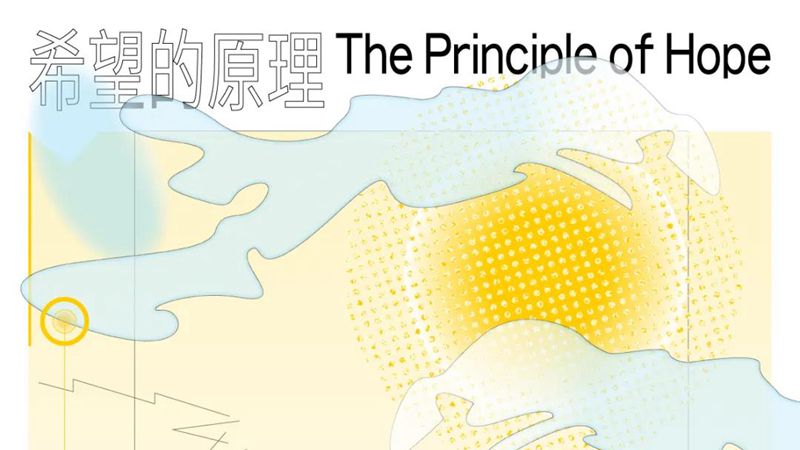The Principle of Hope Opening Keynote Speech: “The Future” in Chinese Early Modern Thought (1840s-1940s)
The Principle of Hope, a new exhibition at Beijing Inside-Out Art Museum is opening on Oct 16, 2021. It is an exhibition that contemplates, envisions, summons and claims the “future.” By presenting the practices of Chinese and international artists and cultural practitioners, we demonstrate the future as a space full of potential, beckoning for the subjective individual, to confront the present with the courage and enthusiasm of a future-oriented outlook. However, the threads of imagining the future in the present are also often inherited from past visions of the future. Beijing Inside-Out Art Museum is honored to invite Professor Wang Xiaoming from the Program in Cultural Studies/ Department of Chinese Language and Literature, Shanghai University to deliver the opening keynote speech for The Principle of Hope: “The Future” in Early Modern Chinese Thought. The keynote speech is moderated by the exhibition’s artistic directors Carol Yinghua Lu, director of Beijing Inside-Out Art Museum, and Luo Xiaoming, head of Program in Cultural Studies, Shanghai University. The discussion of the future is an ongoing intellectual activity that encompasses multiple levels of observation and research from art, literature, history, sociology, etc,. During the exhibition, we will organize a series of artist talks and discursive events to deepen our thinking on the topic of “the future”. Please stay tuned.

The Principle of Hope Opening Keynote Speech: “The Future” in Chinese Early Modern Thought (1840s-1940s)
Time
2021.10.16 14:30-16:00
Speaker
Wang Xiaoming (Professor of Program in Cultural Studies / Department of Chinese Language and Literature, Shanghai University)
Moderators
Carol Yinghua Lu (Director of Beijing Inside-Out Art Museum), Luo Xiaoming (Head of Program in Cultural Studies, Shanghai University)
Being in an era when nothing is certain except uncertainty, and being in a society that is constantly changing and longing for the exploration of the way like China, it becomes especially important and urgent to review and renew our imagination and thinking about the future.
While review requires reliable reference, renewal depends on the inspiration of spiritual resources we have. The thinking and descriptions of the “future” by several generations of early modern Chinese culture practitioners/intellectuals (1840s-1940s) are undoubtedly the most important spiritual resources today.
After an extremely cursory overview of the general lineage of Chinese thinkers/reformers who imagined and thought about the “future” during this period, this lecture will then provide a brief introduction to some of the key issues, in anticipation of an in-depth discussion with the audience.
Speaker

Wang Xiaoming was born in 1955 in Shanghai. He is currently a professor in Program in Cultural Studies / Department of Chinese Language and Literature, Shanghai University and the director of the Center for Contemporary Cultural Studies there. His recent single-volume books in Chinese include Cross Stations (Taipei, 2013), Close Look and Far View (Shanghai, 2014), and The Life That Cannot Be Faced Straight – A Biography of Lu Xun (revised edition, Beijing, 2021). Currently, he is mainly engaged in contemporary cultural analysis and research on early modern Chinese thought.
Moderators

Carol Yinghua Lu is an art historian and curator. She is director of Beijing Inside-Out Art Museum. She received her PhD in Art History from the University of Melbourne in 2020. From 2012 to 2015, she was the artistic director and chief curator of OCAT Shenzhen. She was the co-artistic director of the 2012 Gwangju Biennale and co-curator of the 7th Shenzhen Sculpture Biennale in 2012. She was the first visiting fellow in the Asia-Pacific Fellowship program at the Tate Research Centre in 2013 and was one of the first four ARIAH (Association of Research Institute in Art History) East Asia Fellows in 2017. Since 2013, Carol Yinghua Lu has been in collaboration with artist Liu Ding in the research on the legacy of socialist realism in the practices and discourses of contemporary art in China, entitled “From the Issue of Art to the Issue of Position: Echoes of Socialist Realism.”
Carol Yinghua Lu has served as a jury member for several important awards in the global art world, including the Golden Lion at the 2012 Venice Biennale, the Future Generation Art Award at the Pinchuk Art Center in Kiev in 2012, the Philippine National Pavilion at the 2018 Venice Architecture Biennale, the Hugo Boss Asian Emerging Artist Award and Rolex Rolex Mentor and Protégé Arts Initiative in 2019, the Discovery Award at the 2020 Jimei-Arles International Photo Art Season and the Hyundai Blue Prize Youth Curatorial Award in 2021. She has been on the jury for the Tokyo Contemporary Art Award since 2019.

Luo Xiaoming is a cultural researcher at Program in Cultural Studies, Shanghai University, a full-time researcher at the Centre for Chinese Contemporary Cultural Studies, and a visiting scholar at Birkbeck College, University of London. She was the core organizer of the bi-monthly citizen’s forum “Our City” from September 2012 to September 2017. In 2015, she published “The Ticket to Doom – Cultural Analysis in Daily Life”, the first monograph in China to analyze the current cultural situation in China from the perspective of cultural studies, thus generating wide interest among young readers. She also co-published Today’s Urban Youth’s “Home Life” for China Contemporary Culture Research Center and Exploration and Controversy magazine(2016), which uses “home life” as the core concept to look at the daily lives of contemporary urban youth. From 2017 to 2020, she was the editor-in-chief of Hot Wind Academic (online journal). In 2019, she edited and published Anti-Go: A Reader in Inter-Asian Cultural Studies, which is the first and currently the only domestic reader on the subject of Asian cultural studies in China, providing the archival conditions for establishing a new Asian perspective on cultural and social analysis in mainland China. Since 2015, she has been studying contemporary Chinese science fiction, focusing on the imagination and limits of science fiction literature triggered by the urbanization process in contemporary China.
Editor: Scarly Zhou
WeChat: Min Rui


Leave a Reply